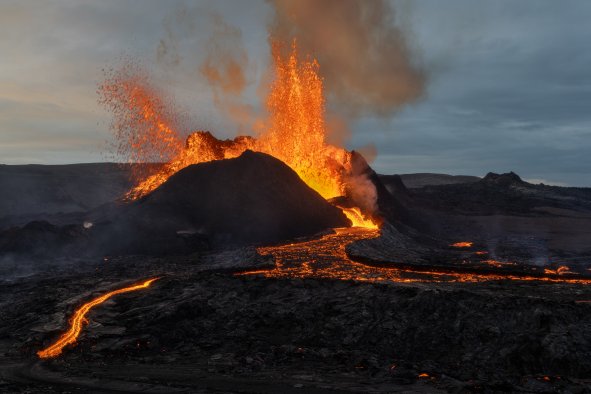The number of people from younger generations being diagnosed with certain types of cancer such as breast and stomach has risen over the years.
Researchers from the American Cancer Society found that among several of 34 kinds of cancer, rates have been increasing with each new generation.
Those born in 1990 are two to three times more likely to develop pancreatic, kidney and small intestinal cancer compared to those born in 1955. Younger women today are also two to three times more likely to get liver cancer compared to women from older generations.
After an observed decline in older generations, the number of new cases climbed in younger generations for nine other cancers. These include breast, uterine, colorectal, non-cardia gastric, gallbladder, ovarian and testicular cancers, as well as anal cancer and Kaposi sarcoma in men.
Across different cancer types, the number of cases in people born in 1990 was 12 percent higher for ovarian cancer and up to 169 percent higher for uterine cancer compared to the birth cohort with the lowest rates.
Death rates also increased in younger generations for uterine, gallbladder, testicular, colorectal and liver cancer.
"Based on what we have seen in smaller studies, the rates of cancer incidence in general is not surprising, but perhaps the finding of steadily increasing rates in younger people is more surprising," Justin Balko, professor of medicine, hematology and oncology at Vanderbilt University Medical Center, told Newsweek.
"It suggests that there are very real exposure risks that we don't fully understand, rather than simply aging populations. As for those factors, it's hard to pinpoint what they may be and it is a very complex discussion for each individual tumor type, to make hypotheses.
"Understanding the environmental and lifestyle risks, such as obesity, and whether we can reverse or need to prevent them could have a big impact on slowing this progression. However, those are complex issues that take a lot of buy-in to study, understand, and provide a solution."
He also noted that advancements in diagnostic technologies and screening practices over the years likely contribute to the reported increase in cancer incidence among younger populations. This is generally positive, as cancers are detected earlier. However, it does not fully explain the trend.
Costas Lyssiotis, professor of oncology at the University of Michigan, who describes the study as "impressive in its scope," also asserted that better detection is "absolutely" responsible for the rising incidence of many of these cancers.
"However, that is not the whole story. The increased incidence in obesity-related and GI cancers is a bona fide increase. As it relates to screening-related incidence increases, this may be best reflected for cancers where there is more incidence yet less mortality," he told Newsweek.
"I would venture to guess that, in such cases, we are just getting better at detecting disease. This could be because of dedicated screening efforts, or more ancillary diagnostics that result in identification of cancer."
As a cancer biologist, Lyssiotis adds that while he is not taken aback by the findings due to his familiarity with recent advances, he believes a general audience might find this information surprising. He points out that, although people are generally aware of the rise in obesity-associated cancers, the increase in non-obese cancers is likely less well recognized.
"These findings add to growing evidence of increased cancer risk in post-Baby Boomer generations, expanding on previous findings of early-onset colorectal cancer and a few obesity-associated cancers to encompass a broader range of cancer types," Dr. Hyuna Sung, lead study author and scientist at the American Cancer Society, said in a statement.
"Birth cohorts, groups of people classified by their birth year, share unique social, economic, political, and climate environments, which affect their exposure to cancer risk factors during their crucial developmental years."
However, while Sung acknowledges that the research has identified trends linked to birth years, she admits that it is not able to provide a clear explanation for the rate increases.
To obtain the information in the study, researchers analyzed data from over 23 million patients diagnosed with cancer and mortality data from 7 million deaths from 2000 to 2019.
The data, published in the Lancet Public Health Journal, was sourced from the North American Association of Central Cancer Registries and the U.S. National Center for Health Statistics.
To compare cancer rates across generations, the study authors calculated cancer incidence and mortality rates for different birth cohorts, adjusted for age and time period effects, using five-year intervals from 1920 to 1990.
"The increase in cancer rates among this younger group of people indicate generational shifts in cancer risk and often serve as an early indicator of future cancer burden in the country, Dr. Ahmedin Jemal, study author and senior vice president at the American Cancer Society, said in a statement.
"Without effective population-level interventions, and as the elevated risk in younger generations is carried over as individuals age, an overall increase in cancer burden could occur in the future, halting or reversing decades of progress against the disease."
The data highlights the critical need to identify and address underlying risk factors in Gen X and millennial populations to inform prevention strategies, he added.
Do you have a tip on a science story that Newsweek should be covering? Do you have a question about cancer? Let us know via science@newsweek.com.
Disclaimer: The copyright of this article belongs to the original author. Reposting this article is solely for the purpose of information dissemination and does not constitute any investment advice. If there is any infringement, please contact us immediately. We will make corrections or deletions as necessary. Thank you.



